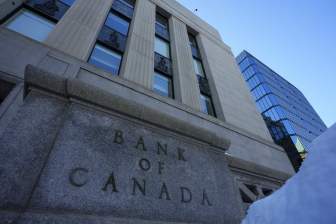Andrew Weaver says the BC Green party will continue to grow even without a change in electoral systems to proportional representation. Weaver’s party won 18 per cent of the votes in the 2017 provincial elections but occupy just three of 87 seats.

“The BC Greens have not been nor have they ever been a fringe party,” Weaver said. “If you look at the policy measures that have been passed in this last session and look at the influence the Greens have on the politics of British Columbia, you will see it has been quite profound.”
The debate around proportional representation was a huge issue for many Green party supporters in 2018 but it wasn’t the issue that defined Weaver and his party. In a wide-ranging year-end interview, the leader of B.C.’s third party said B.C. government’s climate plan never would have happened without his party.
“The plan. Without any doubt in my mind, if we the BC Greens were not there, this plan would not have come to fruition,” Weaver said.
“Politics is about public service. It’s not about getting credit for everything.”
It was hard to follow up 2017 for the BC Green party. Weaver held the balance of power following the closest election in the province’s history and opted to support the BC NDP after signing a confidence and supply agreement.
The Greens have now been keeping the BC NDP government afloat for over a year and the party’s finger prints are starting to become visible on provincial policy. Weaver says it hasn’t just been climate strategy where there has been influence.

Get daily National news
WATCH (aired Sept. 12): B.C. mayors call for changes to speculation tax

This last fall the Greens put forward three amendments to change the province’s speculation tax that were supported by the NDP. The government agreed to hold an annual meeting between the provincial finance minister and municipalities affected by the tax, to direct revenue raised by the tax to social housing projects in some communities, and to apply a lower tax rate to all Canadian permanent residents, and not just permanent residents of B.C.
“I was willing to go to an election over this, if we treated Canadians differently. The half per cent was going to be for British Columbians and one per cent for other Canadians. It was fundamentally wrong,” Weaver said. “We were able to get the NDP to move on this. They didn’t want to, but they did.”
It wasn’t the only issue where Weaver threatened to take down the government. The Greens also raised concerns about a major Liquefied Natural Gas industry in the province.
WATCH: Green Party won’t ‘support giveaway for LNG Canada’

For now Weaver is confident that the emissions from the LNG Canada project in Kitimat will not ruin the province’s climate plan. But he is still unhappy with how both the NDP and before them the Liberals bowed down to the industry.
“We have been on record all along that we cannot support this project,” Weaver said. “This project is a sell out in terms of us basically giving away out resource without hope of recouping revenues for decades.”
Another issue where Weaver has struggled to get the government to move is on rapid implementation of ridesharing. The Greens have been advocating for years to see ridesharing in the province.
WATCH: Green caucus would have brought in ridesharing ‘3 years ago’

The B.C. government have now passed legislation that will allow ridesharing companies to apply to work in B.C. by the fall of 2019 but the Greens are disappointed with how slowly things have gone.
“We are simply not happy with the status quo and we think we can get the NDP there.”









Comments